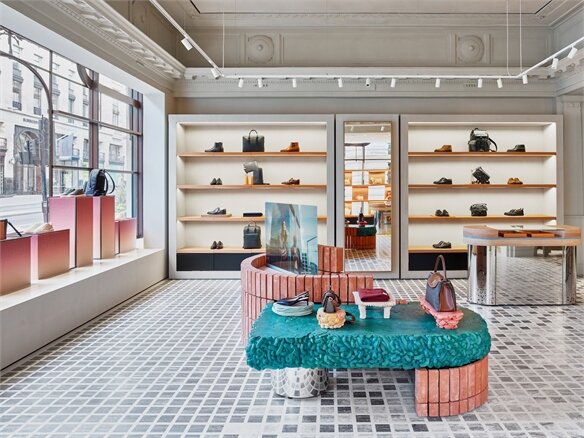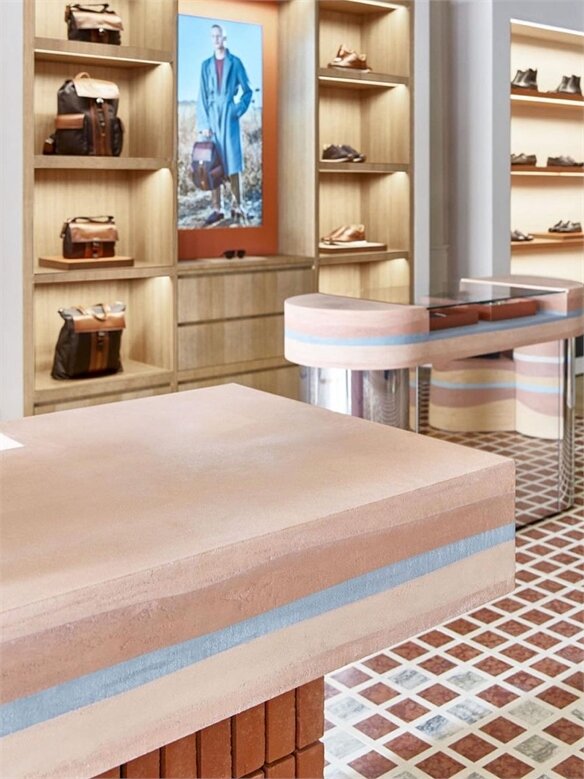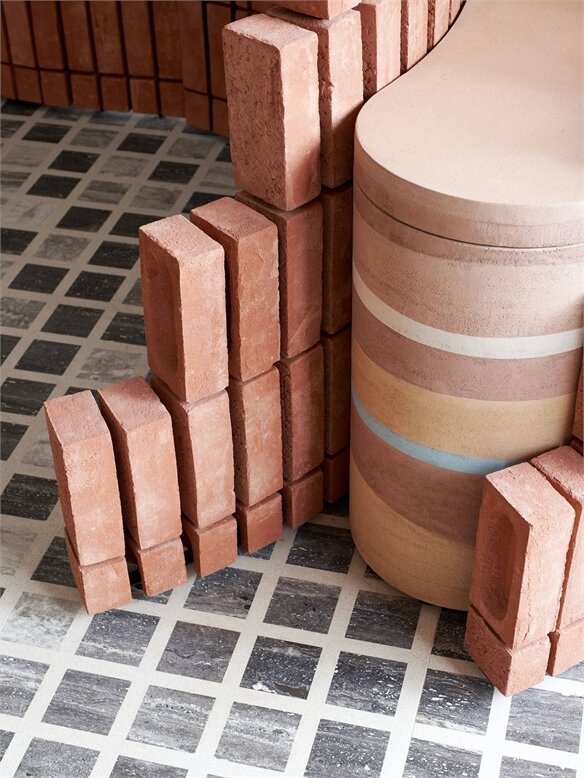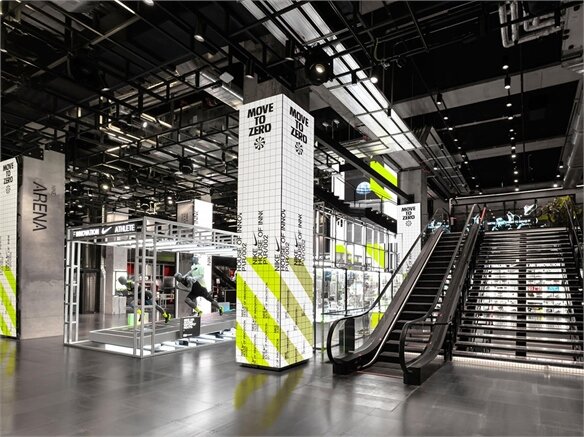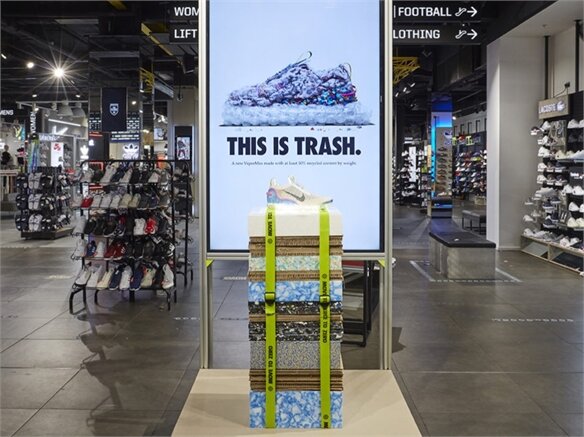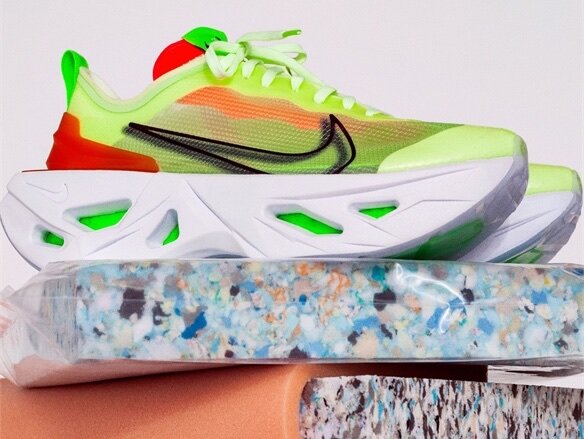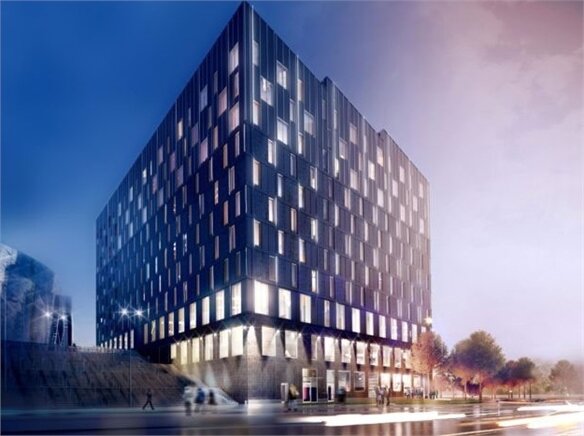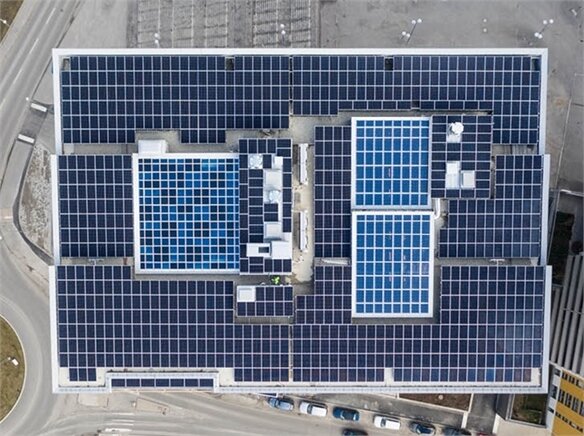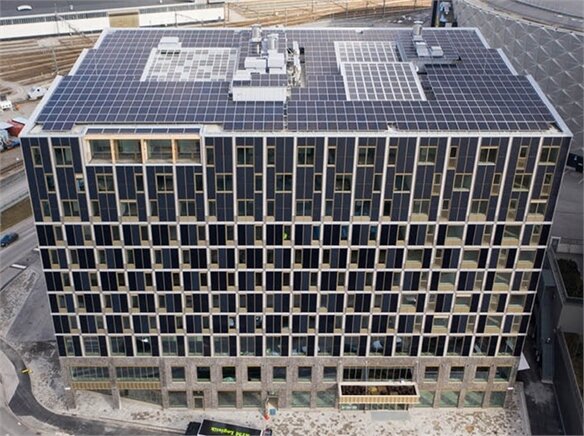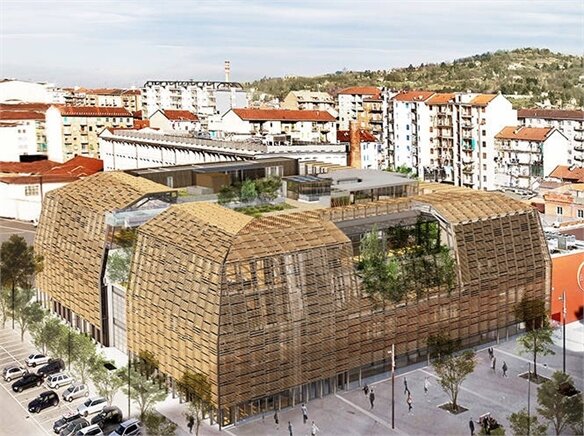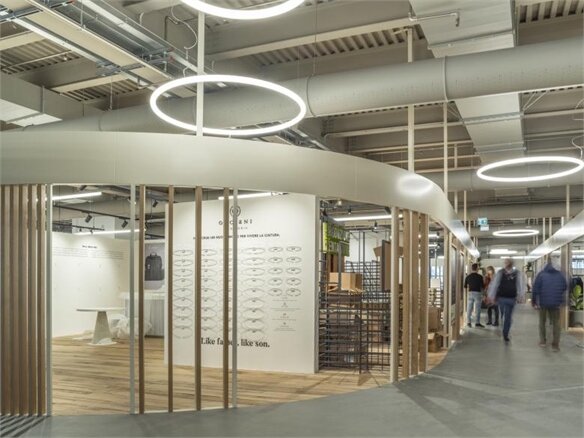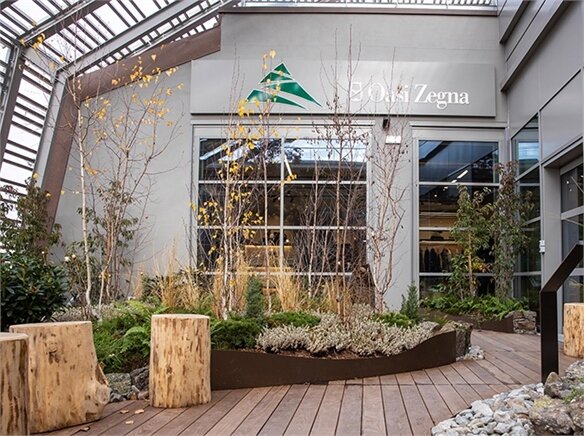Sustainable Store & Hospitality Design
Sustainable Store & Hospitality Design
With the IPCC report confirming climate change to be widespread and intensifying, brands have an urgent imperative to rework their physical spaces. From zero-waste pop-ups to carbon-negative façades and lower-impact localism – and spanning sectors from fashion to automotive – we look at new eco-led design tactics, treatments and innovations, and the pioneers driving them.
Lower-Impact Localism
Smart brands from tech to fashion are focusing on store designs using local materials (including biomaterials and newly certified for construction) and craftsmanship that lower their carbon footprint, alongside communicating a more region-specific identity. The strategy chimes with the pandemic-spurred renaissance affection for locality, promising extra traction.
Local waste gets a luxury treatment by Bally. Bally Haus features bespoke visual merchandising and display pieces including footwear rises, bookends and fixtures repurposed from local plastic waste (high-density polyethylene and polypropylene plastic, found in bottles or packaging).
Radical Reuse: No-Waste Spaces
Progressive retailers are fuelling their circularity mission by rethinking their formats via innovative recycled or repurposed materials. Key examples include fashion offcuts in furnishings, carbon-emission-extracting tiles, energy-sealing architectural 'envelopes', and turning overlooked organic waste (think egg and tamarind shell) into fixtures.
Nike Gives Products a Spatial Second Life: Nike's Innovation House flagship in Paris uses Nike Grind – a material made from its Reuse-A-Shoe programme, where footwear from any brand can be donated and transformed into new materials (bolstered by surplus manufacturing materials) – in the store's walls and floors. Over 85,000kg of sustainable materials feature in the design and display fixtures, while a partnership with Spanish multinational electric utility company Iberdrola means it's partly fuelled by a clean energy wind complex in Spain.
Eco-Activating the Flagship Façade
Store façades are becoming powerful agents of change, capable of actively redressing environmental damage. Innovative surface treatments such as CO2-absorbent panels and green exterior living walls that can tackle urban overheating are prime examples, with eco-tech pioneers including German climate-focused materials science start-up Made of Air driving the charge.
Comfort Hotel Solna Provides Hospitality Industry Learnings: Billed as Scandinavia's first zero-energy (self-sufficient) hotel is the 11-storey Comfort Hotel Solna on the outskirts of Stockholm uses recycled aluminium façades from repurposed building systems by Norwegian sustainable industrial/building systems company Hydro and features 2500 sq. m of solar panels on the roof. Boasting the most solar cells in the world for a hotel in relation to its size, its architects, Swedish practice White Arkitekter say it "provides enough electricity for an electric car to drive more than 40 laps around the earth."
360° Superstore Super-Innovators
A new wave of supersized formats (supermarkets, shopping malls) are promoting eco-positive change by becoming eco-destinations in their own right, weaving their sustainability credentials into a wide range of retail, operational and service-based touchpoints. Lidl's Zero store in Holland and Ikea's forthcoming Copenhagen flagship are particularly noteworthy.
Green Pea, The Pack-Away Retail Park: Turin's eco-friendly Green Pea shopping mall (opened in 2020) has been built only with recyclable materials such as steel, iron and glass, and can be completely dismantled. The 10,500 sq m building is coated with Airlite paint, which reduces air pollution by 88% and kills 99.9% of bacteria.
Additionally, over 87% of its hot water is generated by a geothermal plant, and more than 88% of its thermic energy and almost 90% of the electric energy it uses for lighting comes from renewable photovoltaic sources.

